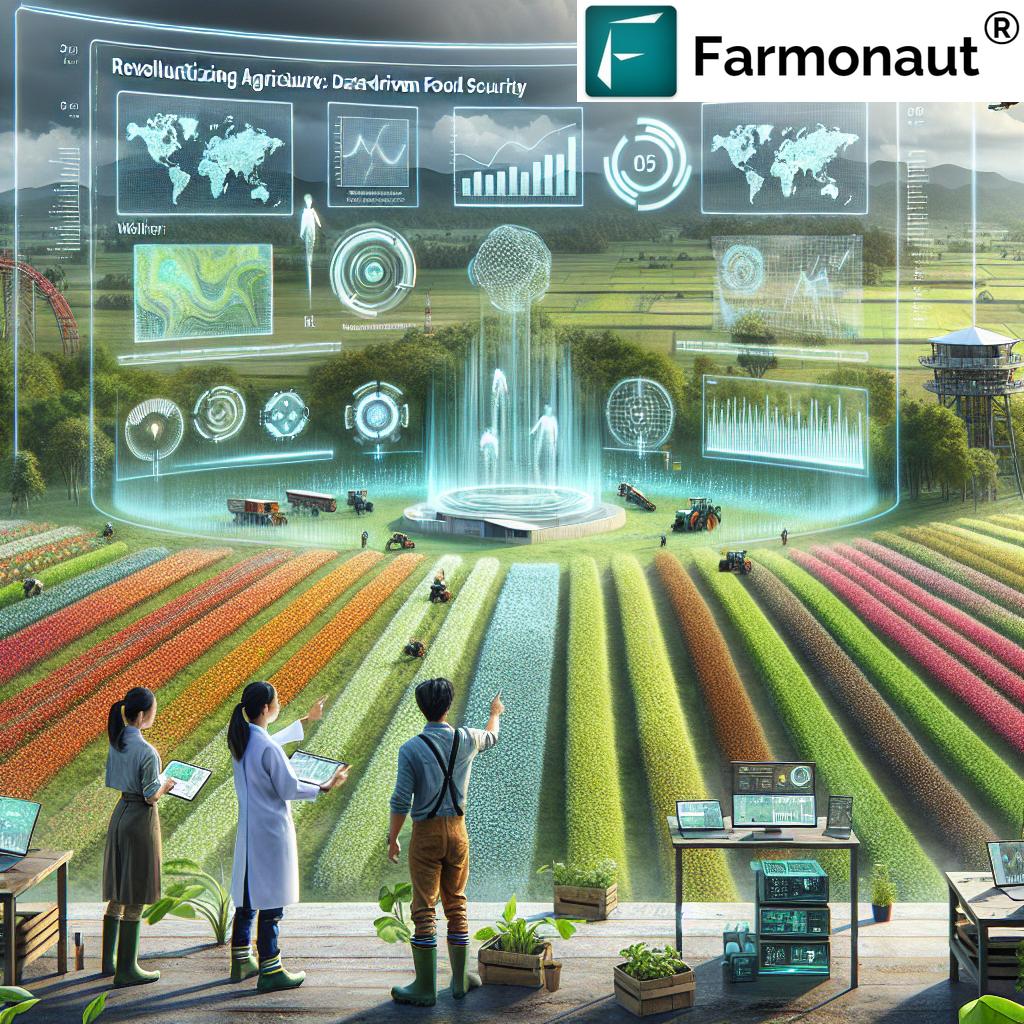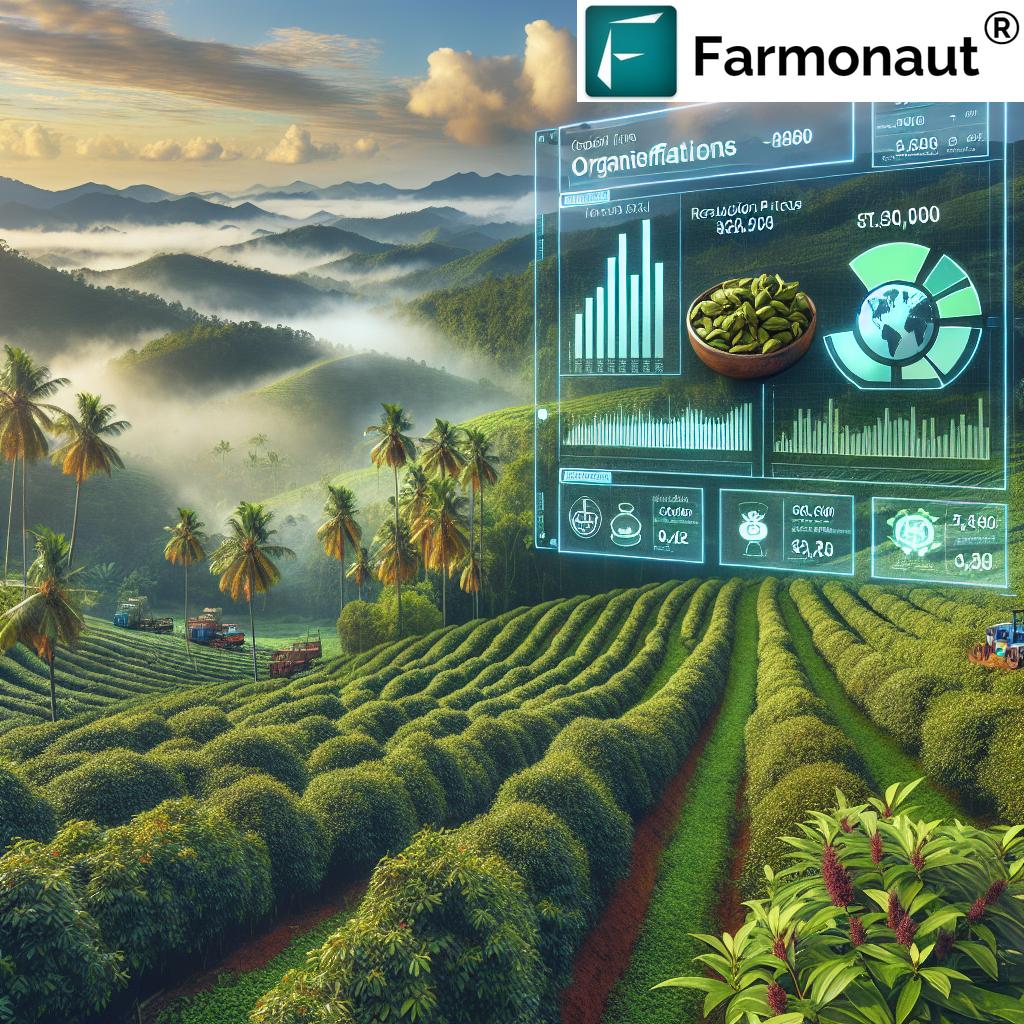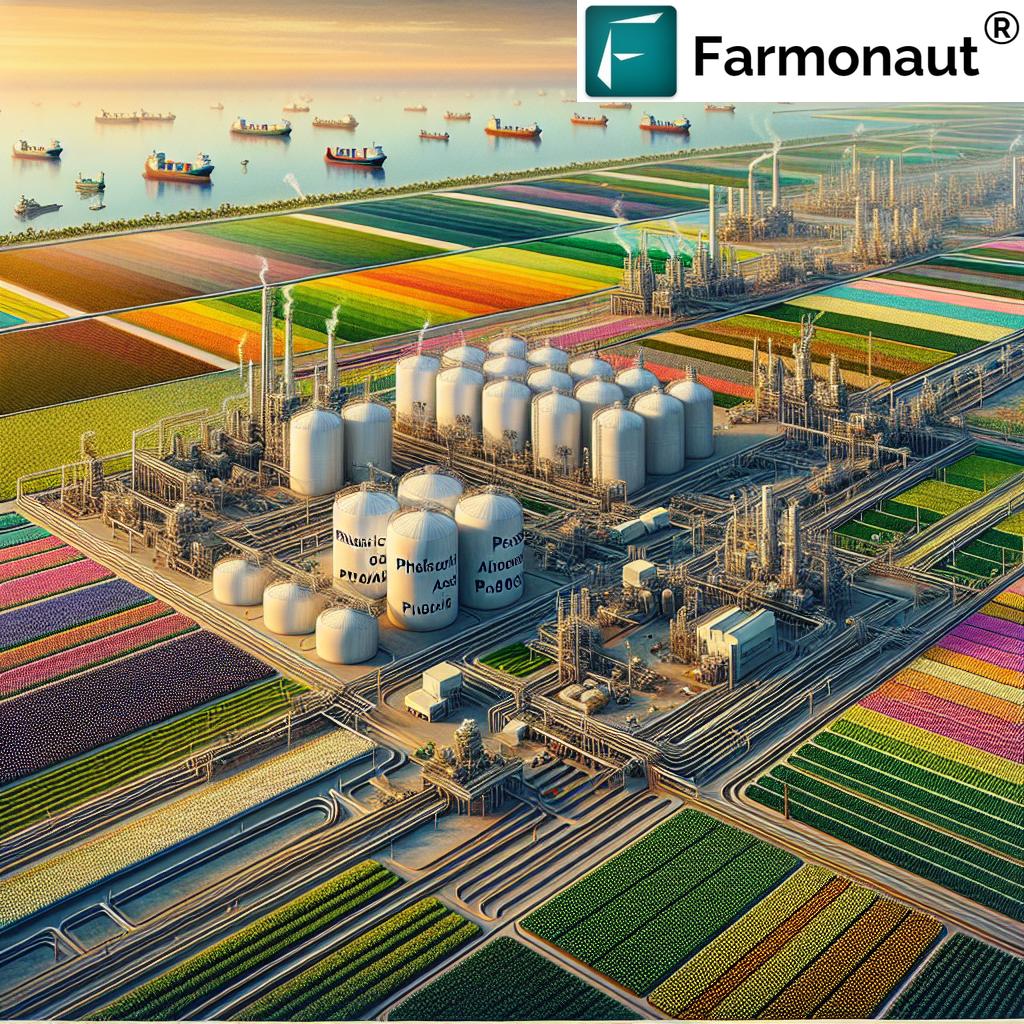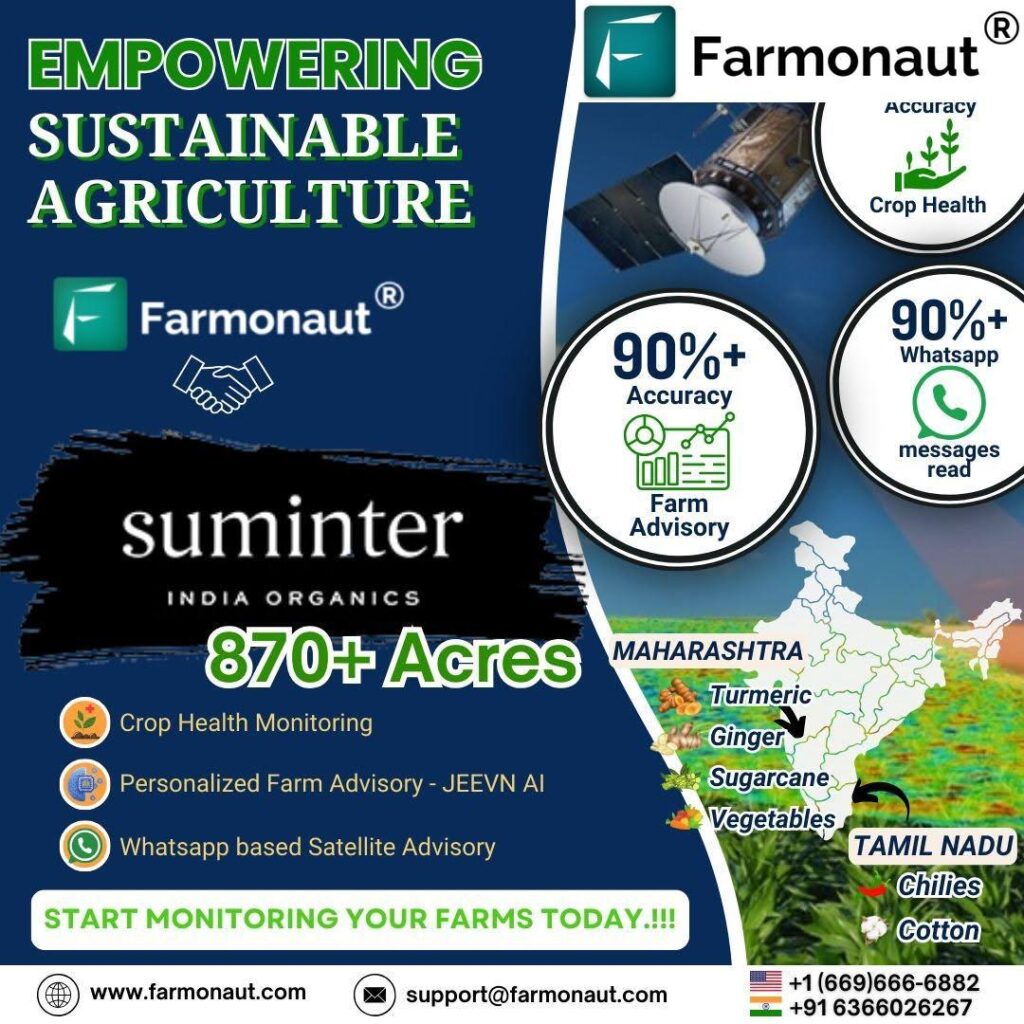Revolutionizing Thai Agriculture: How Precision Soil Data Drives Sustainable Food Security
“Climate-smart agriculture practices can capture up to 2 gigatons of CO2 annually, aiding in global climate change mitigation efforts.”
As we delve into the heart of Thailand’s agricultural revolution, we find ourselves at the forefront of a global movement towards sustainable soil management and food security. The recent World Soil Day 2024 celebrations in Pak Chong, Thailand, marked a pivotal moment in the international community’s commitment to combating soil degradation and ensuring a sustainable future for our planet’s food systems.
In this comprehensive exploration, we’ll uncover how precision soil data is transforming Thai agriculture and driving sustainable food security initiatives worldwide. From the lush fields of Thailand to the arid lands of Saudi Arabia, we’ll examine the crucial role of accurate soil information in shaping the future of global agriculture.
The Global Soil Crisis: A Call to Action
The urgency of addressing soil health has never been more apparent. With 1.6 billion hectares of land degraded worldwide, the need for effective soil health monitoring and management strategies is critical. This degradation not only threatens our ability to produce food but also impacts climate change, biodiversity, and water resources.
At the heart of this crisis lies the need for accurate, comprehensive soil data. As the Food and Agriculture Organization (FAO) of the United Nations emphasizes, “To manage, we must measure.” This principle underscores the importance of precision agriculture technologies and digital soil mapping in empowering farmers and policymakers to make informed decisions about land use and conservation.

Thailand: A Beacon of Sustainable Soil Management
Thailand’s leadership in sustainable soil management was highlighted during the World Soil Day 2024 celebrations. The event, hosted for the first time outside FAO headquarters, showcased Thailand’s commitment to innovative agricultural practices and soil conservation techniques.
- Princess Maha Chakri Sirindhorn’s presence underscored the royal family’s dedication to agricultural development
- Deputy Minister of Agriculture and Cooperatives Akara Prompow emphasized the government’s support for sustainable farming practices
- The Land Development Department received the prestigious Glinka Prize for its holistic approach to soil management
These initiatives demonstrate Thailand’s proactive stance in addressing soil challenges through the use of accurate data and community involvement. The country’s efforts serve as a model for other nations seeking to implement sustainable soil management practices.
Precision Agriculture: The Game-Changer in Thai Farming
Precision agriculture technologies are revolutionizing the way Thai farmers approach soil management. By leveraging satellite imagery, AI-driven analytics, and digital soil mapping, farmers can now make data-driven decisions to optimize crop yields while minimizing environmental impact.
One such innovative solution is provided by Farmonaut, a pioneering agricultural technology company that offers advanced, satellite-based farm management solutions. Through its platform, Farmonaut empowers Thai farmers with real-time crop health monitoring, AI-based advisory systems, and resource management tools.
The integration of these precision agriculture technologies in Thailand has led to:
- Improved nutrient efficiency in croplands
- Reduced water usage through precise irrigation management
- Enhanced pest and disease control through early detection
- Increased crop yields while minimizing environmental impact
By adopting these advanced technologies, Thai farmers are not only improving their productivity but also contributing to the country’s food security and environmental sustainability goals.
Digital Soil Mapping: Unlocking the Secrets Beneath Our Feet
Digital soil mapping is a cornerstone of precision agriculture, providing detailed insights into soil composition, health, and potential. In Thailand and around the world, this technology is transforming how we understand and manage our soils.
Farmonaut’s digital soil mapping capabilities offer Thai farmers unprecedented access to detailed soil data. By utilizing satellite imagery and advanced algorithms, the platform can provide farmers with crucial information about:
- Soil organic carbon content
- Nutrient levels and deficiencies
- Soil moisture and water retention capacity
- Potential erosion risks
This wealth of information enables farmers to tailor their management practices to the specific needs of their land, resulting in more sustainable and productive farming systems.

Climate-Smart Agriculture: Mitigating Environmental Impact
The adoption of climate-smart agriculture practices is a key focus in Thailand’s efforts to combat soil degradation and mitigate climate change. These practices, supported by comprehensive soil information, have the potential to capture up to 2 gigatons of CO2 annually.
Farmonaut’s platform contributes to climate-smart agriculture by providing:
- Carbon footprint tracking for agribusinesses
- AI-driven recommendations for sustainable farming practices
- Real-time monitoring of crop health to optimize resource use
By implementing these climate-smart techniques, Thai farmers are not only improving their resilience to climate change but also actively contributing to global efforts to reduce greenhouse gas emissions.
The Global Context: From Thailand to Saudi Arabia
While Thailand showcases remarkable progress in sustainable soil management, the global effort extends far beyond its borders. The 16th Conference of the Parties of the United Nations Convention to Combat Desertification (UNCCD) in Saudi Arabia highlights the international community’s commitment to addressing soil challenges.
Key developments from the global stage include:
- The launch of the Regional Action Plan for Sustainable Soil Management in the Near East and North Africa
- Collaborative efforts between scientists, national institutions, and international organizations to develop land degradation solutions
- The implementation of soil conservation techniques across diverse ecosystems, from croplands to pasturelands
These global initiatives underscore the interconnected nature of soil health and the need for coordinated action to ensure food security for future generations.
Empowering Farmers with Soil Data
At the core of these advancements is the empowerment of farmers through access to accurate, timely soil data. Platforms like Farmonaut play a crucial role in democratizing access to precision agriculture technologies, making them available to farmers of all scales.
The benefits of providing soil data to farmers include:
- Informed decision-making on crop selection and rotation
- Optimized use of fertilizers and water resources
- Improved soil conservation practices
- Enhanced resilience to climate change impacts
By putting this valuable information directly into the hands of those who work the land, we can drive a bottom-up revolution in sustainable agriculture.
The Role of Technology in Sustainable Soil Management
As we navigate the challenges of soil degradation and climate change, technology emerges as a powerful ally. Farmonaut’s innovative approach to agricultural technology demonstrates how we can leverage cutting-edge tools to support sustainable soil management:
- Satellite-Based Crop Health Monitoring: Real-time insights into vegetation health and soil moisture levels
- AI-Powered Advisory Systems: Personalized recommendations for optimal farm management
- Blockchain-Based Traceability: Ensuring transparency and trust in agricultural supply chains
- Resource Management Tools: Optimizing the use of water, fertilizers, and other inputs
These technological advancements are not just improving farm productivity; they’re also contributing to the broader goals of environmental conservation and food security.
“Worldwide land degradation affects 1.6 billion hectares, emphasizing the urgent need for effective soil health monitoring and management.”
Collaborative Efforts: The Key to Global Soil Health
The challenges facing our soils are too vast and complex for any single entity to address alone. That’s why collaborative efforts between governments, international organizations, scientists, and the private sector are crucial for developing comprehensive solutions.
Key collaborative initiatives include:
- The Global Soil Partnership, facilitated by the FAO
- Joint research projects between universities and agricultural technology companies
- Public-private partnerships to implement sustainable soil management practices at scale
- International knowledge-sharing platforms to disseminate best practices in soil conservation
These collaborative efforts ensure that the latest scientific discoveries and technological innovations are translated into practical solutions for farmers and policymakers worldwide.
The Future of Sustainable Agriculture in Thailand and Beyond
As we look to the future, the path forward for sustainable agriculture in Thailand and around the world is clear. By continuing to invest in precision agriculture technologies, digital soil mapping, and climate-smart practices, we can reverse the trend of soil degradation and ensure food security for generations to come.
Key areas of focus for the future include:
- Expanding access to precision agriculture technologies for smallholder farmers
- Integrating soil health considerations into national and international policy frameworks
- Developing innovative financing mechanisms to support sustainable soil management practices
- Enhancing education and awareness programs to promote soil conservation at all levels of society
With continued commitment and collaboration, we can build a future where healthy soils support thriving ecosystems, resilient communities, and sustainable food systems.
Global Soil Health Initiatives and Impacts
| Region/Country | Soil Management Initiative | Target Area (hectares) | Estimated CO2 Capture (tons/year) |
|---|---|---|---|
| Thailand | Precision agriculture implementation | 5,000,000 | 2,500,000 |
| Saudi Arabia | Cropland restoration project | 1,000,000 | 500,000 |
| Global | Digital soil mapping efforts | 100,000,000 | 50,000,000 |
| International | Climate-smart agriculture practices | 50,000,000 | 25,000,000 |
Conclusion: A Soil-Secure Future for Thailand and the World
The revolution in Thai agriculture, driven by precision soil data and sustainable management practices, serves as a beacon of hope for global food security. By embracing innovative technologies, fostering international collaboration, and prioritizing soil health, Thailand is not only securing its own agricultural future but also contributing to the global fight against soil degradation and climate change.
As we continue to unlock the potential of our soils through advanced data analysis and sustainable practices, we move closer to a world where healthy soils support thriving communities and resilient ecosystems. The journey towards sustainable food security is complex, but with the power of precision soil data and the commitment of farmers, scientists, and policymakers worldwide, we are well-equipped to meet the challenges ahead.
Let us carry forward the momentum generated by World Soil Day 2024 and work together to build a future where every handful of soil tells a story of regeneration, resilience, and abundance.
FAQs
- What is precision agriculture, and how does it benefit Thai farmers?
Precision agriculture uses technology like satellite imagery and AI to provide detailed information about soil and crop health. It helps Thai farmers make data-driven decisions, optimize resource use, and increase yields while reducing environmental impact. - How does digital soil mapping contribute to sustainable agriculture?
Digital soil mapping provides detailed insights into soil composition, health, and potential. This information allows farmers to tailor their management practices to the specific needs of their land, resulting in more sustainable and productive farming systems. - What role does Farmonaut play in Thailand’s agricultural revolution?
Farmonaut offers advanced, satellite-based farm management solutions that provide Thai farmers with real-time crop health monitoring, AI-based advisory systems, and resource management tools. These technologies help farmers implement precision agriculture practices and make informed decisions. - How can climate-smart agriculture practices help combat climate change?
Climate-smart agriculture practices, supported by comprehensive soil information, can capture up to 2 gigatons of CO2 annually. These practices improve soil health, increase resilience to climate impacts, and contribute to global efforts to reduce greenhouse gas emissions. - What are some global initiatives addressing soil health and food security?
Global initiatives include the FAO’s Global Soil Partnership, the UNCCD’s efforts to combat desertification, and regional action plans like the one for sustainable soil management in the Near East and North Africa. These initiatives promote collaboration, knowledge-sharing, and implementation of sustainable soil management practices worldwide.
Explore Farmonaut’s innovative solutions:
For developers: Access Farmonaut’s powerful API and read the comprehensive API Developer Docs.
Download Farmonaut’s mobile apps:










